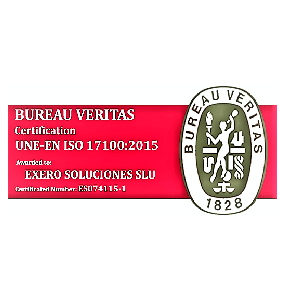Volunteer Translation: What You Need to Know About Translation and Interpreting for a Good Cause
As professional translators, we at Exero Soluciones work for our clients. However, that doesn’t mean that sometimes we don’t use our skills outside of the office. The fact that we make a living from translation doesn’t mean that we can’t do it for our friends and neighbors too. And no, I’m not talking about when your cousin, the one that spent a summer in Mexico (he says may-hee-co), helped you translate your undergrad thesis with Google translate.
No, we’re talking about translating for a good cause: volunteer translation. Today we’re going to discuss what it is and what it consists of as well as share a personal testimony.
-
What is it?
First off, volunteer translation doesn’t need an introduction. It’s a translation done… voluntarily. So far, so good, right? But that’s not all.
We’re also referring to the efforts of translators/interpreters that not only stand out for their work, but also for their compassion. Those that find the time and motivation to offer their language knowledge and skills to those who need it without asking for anything in return. And believe me, there are a lot of people that need a helping hand.
-
Who is it for?
Let’s talk about the organizations that most often ask for volunteer translation. They’re usually charitable foundations, groups, and associations devoted to helping people in situations of social disadvantage.
Picture this: you and your family come here from your home country, and you don’t speak a word of English. You have a mountain of paperwork that you need to take a to bunch of different places to get your visa. Your significant other has to go to the doctor, but you’re not sure how they’re going to understand each other. Your kids have to go to school, but their academic transcripts aren’t in English and without them they can’t start.
There are a number of organizations devoted to making immigrants' arrival to our country easier. Some, like the Red Cross, the U.S. Committee for Refugees and Immigrants, and UNICEF, have special programs that help them navigate through this process. These programs depend on the work of translators and interpreters that make fluid communication possible.
Let’s look at an example. A volunteer interpreter may act as the voice of an immigrant, enabling them to interact with a doctor, lawyer, or civil servants. Likewise, volunteer translation gives the immigrant a written voice and allows their documents to be processed in the corresponding systems. This is a great help for people who otherwise wouldn’t have the means to pay for professional translation/interpreting services.
-
What's the difference between free and volunteer translation?
In a literal sense, any translation done voluntarily is volunteer translation, right? However, for all intents and purposes of this article, we don’t think free translation fits into this category, even if it is voluntary. It’s not quite the same. When a client or a company asks a translator to do a job that’s normally paid for free, they’re taking advantage of their skills and expertise. Moreover, working for free is, in general, counterproductive, and should be avoided. Not only for our own interest, as we’re giving away our hard work, but also because we could do damage to our fellow translators by creating unfair (and illogical) competition.
Some companies that have the means to pay translators, but don’t have any charitable intentions, take advantage of these situations to save money. Translators that are new to the business don’t have much choice but to accept these offers as a way to earn experience, but that doesn’t take away from the fact that they’re giving away their work. In that sense, we don’t consider this the same as volunteer translation.
-
Speaking from personal experience:
This next example is one that’s close to us here at Exero. One of our professionals, Sandra, has been working as a volunteer translator/interpreter for the organization La Vía Campesina, among others, for about the last 6 years. She heard about the organization while in college. She found out that they had an email list for people who wanted to do translations for a good cause and that they we’re also looking for interpreters for their international conferences. They would pay for all expenses and let you practice in the booth. For an interpreter in training, it is like a dream come true.
La Vía Campesina is a global movement that defends the rights of farmers and agricultural workers in rural areas, promotes sustainable development in agriculture, and takes measures to fight global warming. Within that framework are all the documents that they need translated. We’re talking about informative notes, press releases, transcriptions of meetings taking place in European institutions and within their own organizations, memos, etc.
As for interpreting, they have two types: in person and online. They interpret all the group calls for the different delegations, and their job is to render what the other speakers are saying in different languages into Spanish in real time.
For Sandra, this is fascinating work.
“Not only are you helping people who need it and making your little contribution to make the world a fairer place, but you also get to practice your skills and gain experience in things that you might not have known anything about before.”
However, it does come with its difficulties.
“When you spend eight hours a day translating and then continue to translate when you get home, you’re making a sacrifice. As a translator you don’t get any feedback, so that’s why it’s important to be professional and keep all of your memories and glossaries up to date, that way your work is always consistent. Even though it’s volunteer translation, that doesn’t mean that you can’t do quality work.”
The takeaway:
Volunteer translation is a way to help others and grow personally and professionally. As long as we know why we’re doing it and who we’re doing it for, it’s a great way to use our skills and knowledge to give something back.
What do you think? Would you sign up for volunteer translation? Let us know your thoughts in the comment section.







Comments